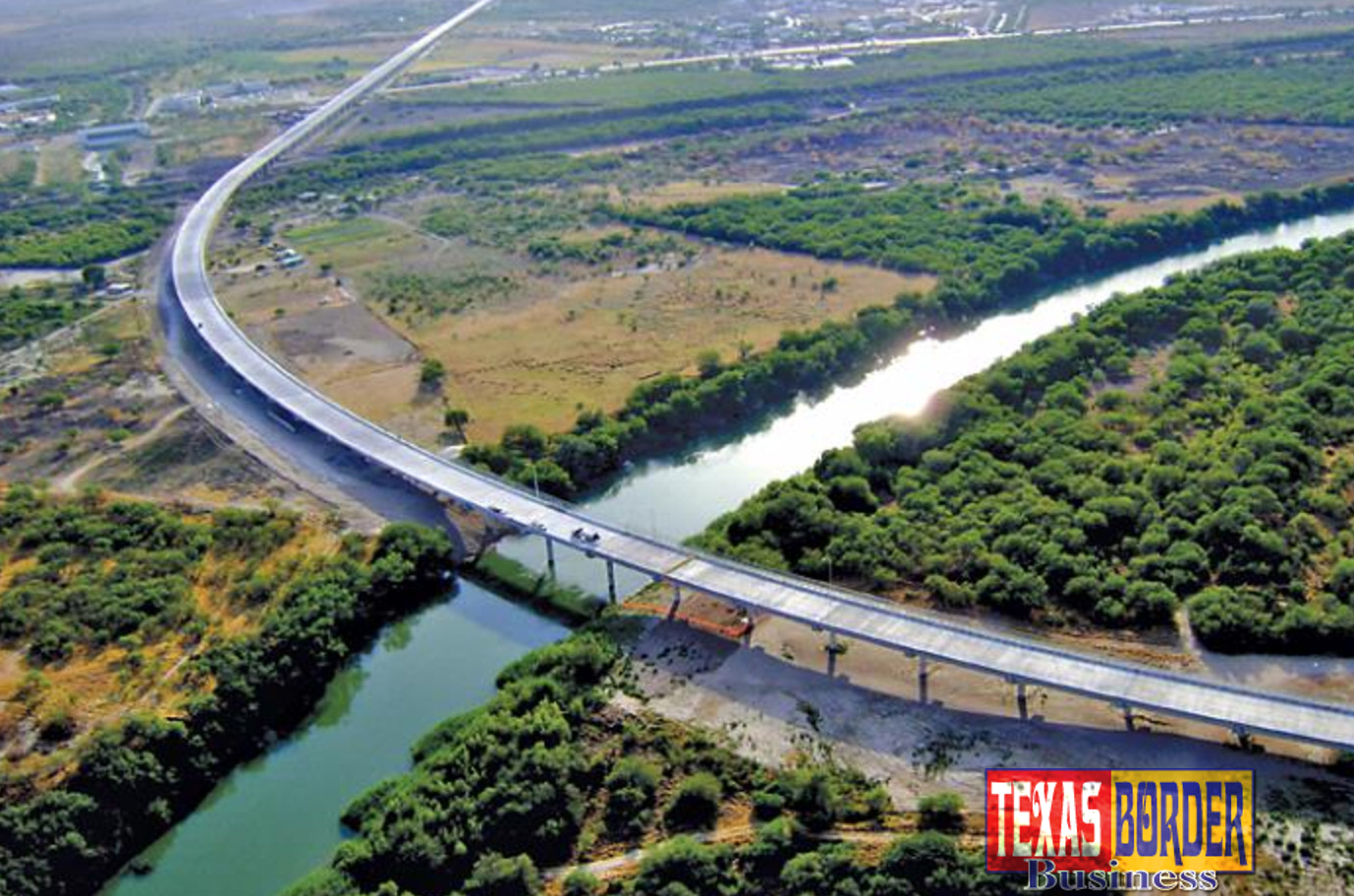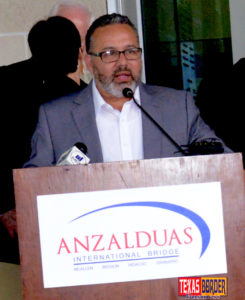
Texas Border Business
Designation Follows 2016 Passage of Legislation Promoting Public-Private Partnerships for Ports of Entry
Local leaders credit bipartisan efforts for program inclusion
(McAllen, TX) Yesterday, the City of McAllen received notice from U.S. Customs and Border Protection that a proposal submitted by the Anzalduas Bridge Board had “been selected to engage in further planning and development activities as part of the Donations Acceptance program.” The proposal was one of four selected from the southern border.
The Anzalduas Bridge proposal seeks to construct and donate northbound empty commercial inspection facilities and related infrastructure and technologies at the McAllen Anzalduas Port of Entry. This effort will help to spur the bridge becoming a full-service commercial bridge in the future, able to cross goods and products in both directions. Local leaders credit the bipartisan efforts of U.S. Congressman Henry Cuellar (TX-28) and U.S. Senator John Cornyn (R-Texas) in helping to not only create the legislation that made this possible, but also, in recognizing the growth and potential of the Anzalduas International Bridge.
“As our area continues to increase in trade from our neighbor to the south into the northern part of the Rio Grande Valley, the opportunity to grow our Anzalduas International Bridge traffic will help our facility become more competitive, as well as more secure by strengthening our relationship with our counterparts in Mexico as we continue to prepare for future,” said City of McAllen Mayor Jim Darling. “A great thanks to Cong. Cuellar and Sen. Cornyn, for not only always working together on projects that benefit the growth and security of Texas, but also and especially, for enhancing the border and our role in trade.”
Bridge officials are excited to be a part of this program because of the opportunity it presents the bridge system.

“I look forward to working with CBP and GSA on this important northbound empty commercial project to further enhance international commerce,” said Rigo Villarreal, Superintendent of Bridges, Anzalduas International and McAllen-Hidalgo.
“When I created the Donations Acceptance Program, projects like this one to improve the McAllen Anzalduas Port of Entry are exactly what I had in mind,” said Cong. Cuellar, who was behind the federal legislation that enabled this new project. “Our ports of entry are a symbol of the economic power of our state and our nation. Now, trade through McAllen will be faster and more streamlined. I would like to thank Senator Cornyn for working with me in a bipartisan way to create these opportunities for businesses and communities in our state of Texas.”
“Investing in our ports of entry reduces wait times, increases efficiency, and encourages commerce across Texas and the nation,” said Sen. Cornyn. “It’s only right these Texas ports are recognized for their role in our nation’s trade and travel. I’m thankful for Congressman Cuellar’s partnership on the legislation that has made this possible.”
The Donations Acceptance Program is a program that enables CBP and the U.S. General Services Administration (GSA) to explore, foster and facilitate partnerships for port of entry infrastructures and technology improvements, with the investment for those projects being made by the local entities.
“With the Anzalduas Bridge Board proposal selected for the Donations Acceptance Program, our bridge has a great opportunity to move ahead in its capacity and importance in the trade growth of our region,” said McAllen City Manager Roel “Roy” Rodriguez, P.E. “Thanks to continuous bipartisan efforts of both Cong. Cuellar and Sen. Cornyn, CBP and GSA have an understanding of the importance of trade, travel and security to not only the border of Texas, but also, to the rest of the nation.”
Background on the Cross-Border Trade Enhancement Act:
Developed with input from border community leaders and transportation industry stakeholders, the Cross-Border Trade Enhancement Act gives U.S. Customs & Border Protection (CBP) the authority to enter into innovative partnerships with local governments and private sector entities. As federal resources remain scarce, port communities have sought alternate avenues to ensure essential needs are met in the face of growing demand. This authority allows CBP to better leverage limited resources to speed up the flow of traffic at international ports of entry. Partnerships with local governments and the private sector will support improvements to border infrastructure and enhance staffing levels across port environments.













